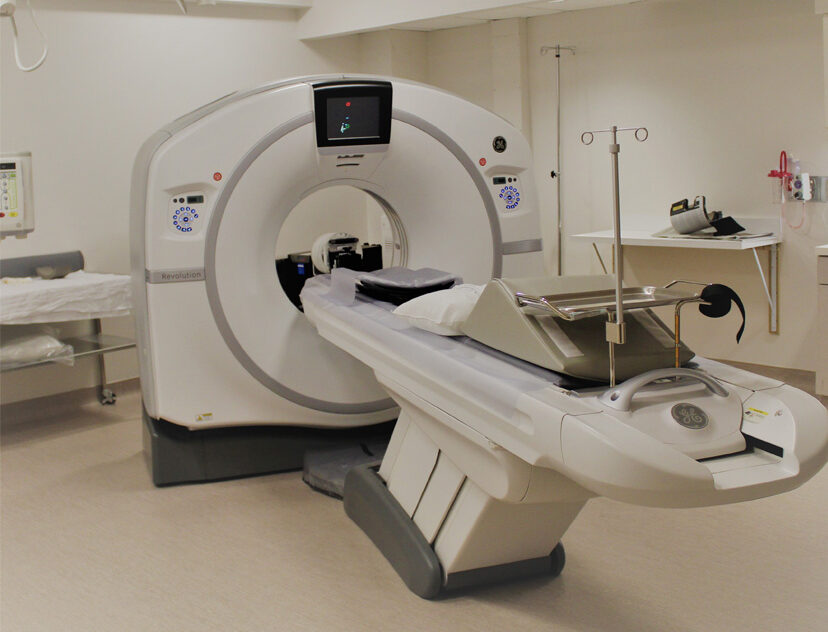Why a CT Scan?
This type of diagnostic imaging is recommended when soft tissue – such as internal organs – must be evaluated. A CT scan is able to give your physician a better view of the size, shape and position of soft tissue structures than if simply using a regular X-ray. These types of CT scans also help identify tumors and cysts, as well as diseases of the liver, lungs, coronary arteries and other organs. CT can also be used as imaging guidance for interventional procedures, such as biopsies and pain injections.
How to Prepare for Your CT Scan
Preparation for a CT scan depends upon which part of your body is being scanned. You may be asked to remove your clothing and wear a hospital gown and you will need to remove any metal objects, such as jewelry, that might interfere with results.
In order to highlight the areas of your body being scanned, a contrast material may be needed. This material simply appears white on the images to emphasize blood vessels, bowel or other structures. You may be asked to drink the contrast, receive it through an injection, or rectally; this depends on what area of the body is being scanned. You may also be required to fast for a period of time before your procedure begins.
Your physician will go over your procedure, along with the risks and preparation requirements in more detail when the test is ordered. If you have any questions or concerns about the procedure, it is important you discuss them with your doctor. It is also important to discuss with your physician any allergies or medications you are taking before undergoing the exam.
During Your CT Scan
During your test, you will lie on a narrow table that slides into a doughnut-shaped hole called the gantry. Straps and pillows may be used to help you stay in position. As the X-ray tube rotates around your body, the table will slowly move through the gantry. While the table is moving, you may be asked to hold your breath to avoid capturing blurry images. You may also hear clicking and whirring noises as each rotation yields several images of slices of your body; those noises are very normal.
There is no pain involved during this procedure, but there are a few risks. Women who are pregnant or who may be pregnant should not have this procedure done, as it can be harmful to the baby. You will also be exposed to more radiation than a normal X-ray, and you may have a reaction to the contrast material, if you were required to take some.
The scanning only takes seconds, but the total time of this procedure can vary, depending on the test. If you have questions, please discuss them with your physician. Our CT technologist can also help answer your questions and can be reached by calling (740) 623-4132. The radiology department is located on the first floor of the hospital at 1460 Orange St. For more information on Radiology testing and treatments, visit RadiologyInfo.org.
Featured Services

Surgical Clinic

Emergency Services
Urgent Care
Physical and Occupational Rehabilitation



